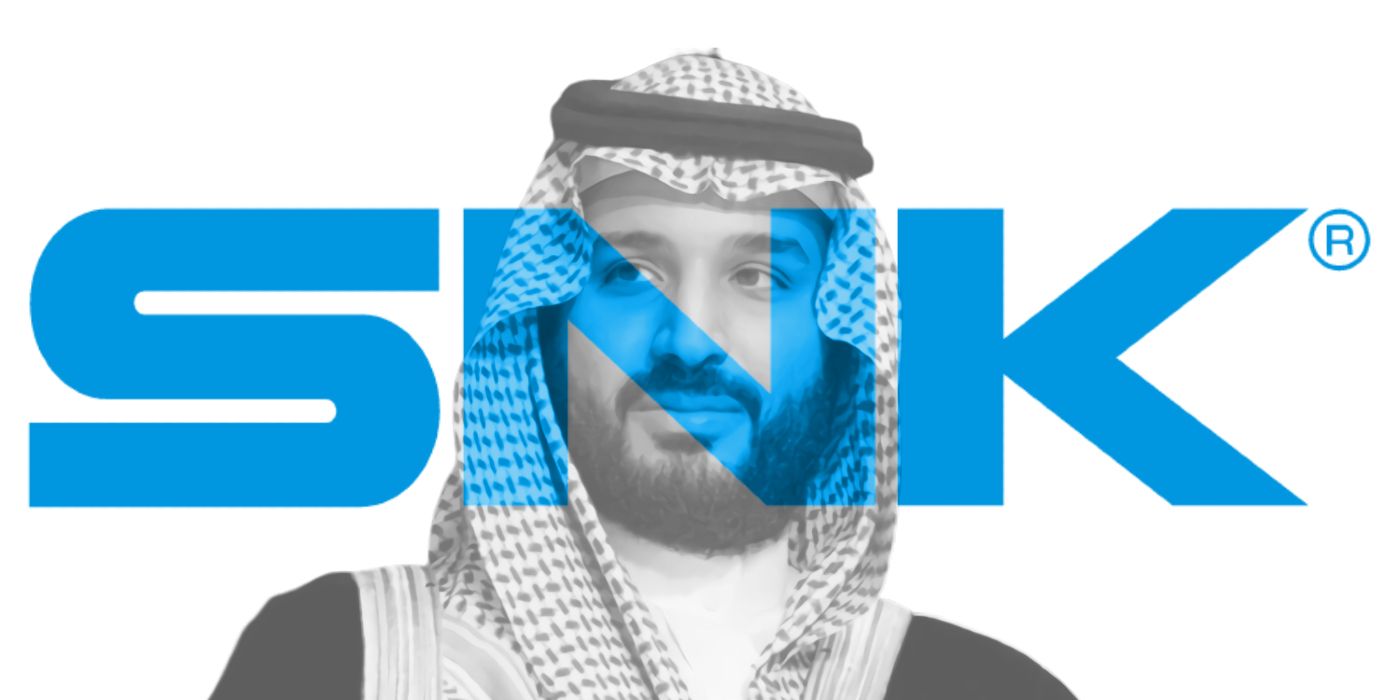The latest shift in ownership of SNK Corporation has caused a stir within its fan base. News recently broke that the Crown Prince of Saudi Arabia, Mohammed bin Salman, had purchased a 33.3% stake in the gaming company through his MiSK Foundation, a non-profit organization held as the forefront of Saudi Arabia's plan to build and educate the youth of its country. This purchase came with an agreement to buy up another 17.7% of shares, making Saudi's Crown Prince the majority shareholder of SNK, once the deal is finalized.
The creator of the long-running King of Fighters franchise, SNK has seen both triumph and tribulation through its years. After going through bankruptcy in 2001, company founder Eikichi Kawasaki created Playmore, which rebranded to SNK Playmore in 2003. The company's focus shifted through the early- and mid-2010s to pachislot games in Japan, a lucrative business move given the popularity of pachinko in the country. By 2016, SNK Playmore rebranded itself back to SNK, with a renewed focus on the video game market and a departure from the pachislot business.
The move by Mohammed bin Salman's foundation boosts the profile and value of SNK as a company while also placing it as a focus in the Crown Prince's "Saudi Vision 2030," a plan to increase Saudi Arabia's profile in other avenues beyond the exportation of oil. The Electronic Games Development Company, founded as a subsidiary of the MiSK Foundation, is one of several steps to achieve this. The financial investment within SNK serves the company well as a business move to secure funds for its titles and to diversify its potential workforce with talent beyond Japan and the U.S. SNK's fan base, however, views this move in a different light, due to Saudi Arabia's history.
Why SNK Corp's Fans Are Disappointed By The Saudi Ownership
As the Crown Prince of Saudi Arabia, Mohammed bin Salman's track record regarding various human rights issues has often come under scrutiny. This has only increased over the last several years; more eyes fell on the country due to its numerous public dealings, such as the controversial Saudi deal with the WWE. At the Greatest Royal Rumble event, the first event under this new deal, WWE aired a video package promoting various aspects of alleged social progress in Saudi Arabia, including a 2017 ruling that allowed women to drive. The promotion was criticized as a propaganda piece.
The murder of Washington Post columnist Jamal Khashoggi has also caused increased scrutiny toward any dealings with the nation. While bin Salman denied direct involvement, the official investigation from the U.N. concluded the murder had been conducted by those with ties to the Saudi government, according to Reuters, and a source familiar with U.S. intelligence told Reuters the CIA believed bin Salman personally approved of the killing. As the investigation wore on, stars and companies began to boycott Saudi Arabia in refusal of indirectly supporting the government responsible for the assassination.
Saudi Arabia has also faced criticism for many human rights issues, including ongoing persecution of individuals who identify as LGBTQ. While some countries are taking strides toward the protection of gay, lesbian, and trans rights, Saudi Arabia does the opposite. Since the government of Saudi Arabia views homosexuality and being transgender as against its religious standards and culture, "consensual same-sex sexual conduct is punishable by death or flogging, depending on the perceived seriousness of the case," according a 2019 U.S. Department of State report. The report found no evidence of the Saudi government seeking death sentences for same-sex relationships throughout the year. But as recently as July 2020, the government imprisoned and deported a Yemeni blogger for supporting equal gay rights, according to Reuters.
The ongoing conflict in Yemen, perpetuated and led by Saudi Arabia, is another entry in the list of grievances against it, as the Saudi government has been accused of committing a number of war crimes there. Saudi Arabia's history and current stances on human rights issues on the world stage make its purchase of SNK a bitter pill for the fan base to swallow. However, it is not wholly unusual for SNK's business dealings to be linked to countries with a controversial past: Prior to this arrangement, 81% of its shares was owned by Ledo Millennium, a Chinese company with investor connections to state-owned enterprises.
When the ink dries, Mohammed bin Salman's MiSK Foundation will own a majority of the shares within SNK. In the eyes of the business, it will likely be celebrated as a lucrative deal for the futures of both SNK and Saudi Arabia. In the eyes of the fan base, it is akin to a betrayal, with the knowledge that future purchases of SNK products will indirectly support a regime that can allow citizens to be executed for who they love or who they are.


